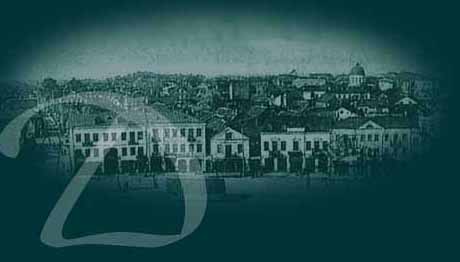Auschwitz march to commemorate Holocaust
April 22, 2009,
Thousands of people marched on Tuesday between the former Nazi German Auschwitz-Birkenau death camps in southern Poland in memory of six million Jews killed in the Holocaust during World War II.
"Our presence here today is a symbol of the victory of humanity against evil," Israeli deputy prime minister Silvan Shalom said in a speech to the 8,000 participants.
 AFP
The annual March of the Living, held since 1988, was overshadowed this year by comments made by Iran's President Mahmoud Ahmadinejad , who described Israel as "totally racist" at a UN anti-racism conference in Geneva.
Ahmadinejad has previously called for Israel to be wiped off the face of the Earth and described the Holocaust as a "myth".
Shalom, speaking at Auschwitz before the march began, told reporters Iran was trying to replicate Nazi Germany's treatment of the Jews.
"What Iran is trying to do right now is not far away at all from what Hitler did to the Jewish people just 65 years ago," he said.
After the wail of traditional Jewish ram's horn - the "shofar", which symbolises freedom - marchers waving blue and white Israeli flags proceeded in brilliant spring sunshine along the three-kilometre route from Auschwitz to Birkenau.
They were led by Holocaust survivors, accompanied by Shalom.
"Today we march in this horrific place, non-Jews and Jews alike, so that the type of hate-filled messages being spoken in Geneva will never be tolerated," said organiser Shmuel Rosenman.
Among the 8,000 marchers from fifty countries, organisers said roughly half were non-Jewish, mostly teenagers from Poland, the neighbouring Czech Republic and Austria.
The march - winding from the brick barracks of the former concentration camp at Auschwitz (Oswiecim in Polish), to the killing fields of Birkenau - honours Jews killed by Nazi Germany across Europe during World War II.
More than one million alone perished at Auschwitz-Birkenau, operated by Nazi Germany in occupied Poland from 1939 until it was liberated by the Soviet Red Army on January 27, 1945.
The site was one of six German death camps set up in Poland, a country which was home to pre-war Europe's largest Jewish community.
Many Auschwitz victims were sent to its notorious gas chambers immediately after being shipped in by train. Others were worked to death as slave labourers.
Among the camp's other victims were tens of thousands of non-Jewish Poles, Soviet prisoners of war, gypsies, and anti-Nazi resistance fighters from across Europe.
Holocaust survivor Braha Karasser, 83, who was saved as a child by non-Jewish Poles in her native Warsaw, said Ahmadinejad's Geneva speech on Monday had not come as a surprise.
"What can you expect from a man who wants to wipe out an entire nation?" she told AFP.
Head of Israel's Teacher's Union Pesach Landesberg, who lost most of his Polish Jewish family in the Holocaust, told AFP the Iranian president's denial of the genocide was cause for real fear.
"Maybe he ( Ahmadinejad ) is thinking about an even bigger Holocaust," Landesberg said.
Jacques Ohana, a 16-year-old Moroccan Jew, said he took pictures of the Auschwitz camp's infamous gas chambers and crematoria.
"We're going to show them to our Muslim friends when we go home," he said.
Shalom also called on US President Barack Obama to impose a deadline on Iran over its nuclear program, which Israel and Western powers fear is aimed at building an atomic bomb. Tehran insists its aims are peaceful.
" Iran represents a threat to the existence of the entire free world, and it is vitally important that we realise this soon," he warned in his speech.
News . |


 Platform
for Jewish-Polish Dialogue
Platform
for Jewish-Polish Dialogue